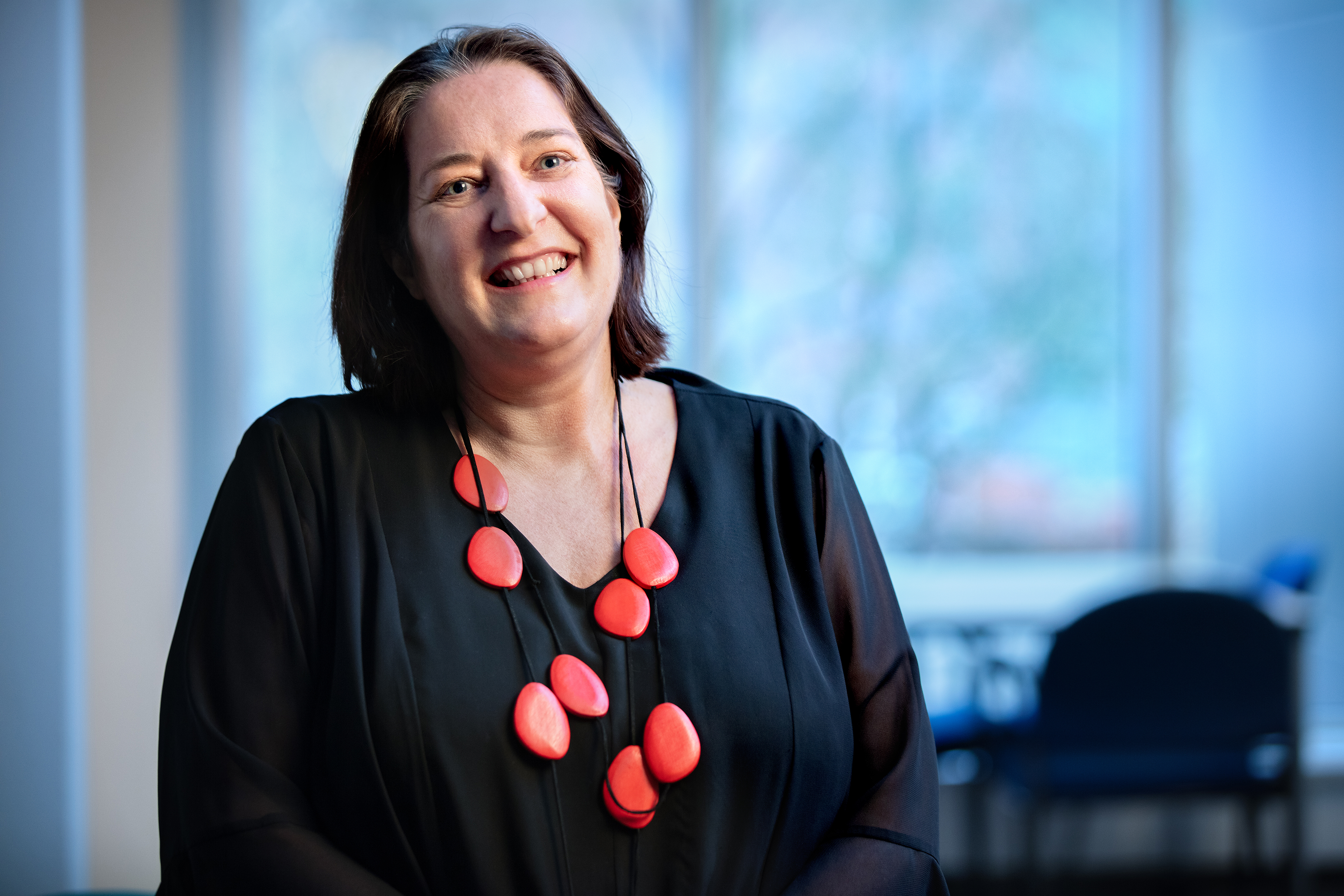“I see opportunities for a greater sense of connection and community”
Silvia Evers, the new scientific director of CAPHRI since 1 November 2021, likes to describe herself as “a community builder”. She succeeds Maurice Zeegers, who will return to teaching and research. “It’s been a great six years, but I feel like it’s time to make way for someone with a fresh perspective”, he says.
His successor is no stranger to CAPHRI. On the contrary, Silvia Evers studied Health Sciences, Epidemiology and Law at Maastricht University and also received her PhD degree from UM. She has been affiliated with CAPHRI for quite some time, having held a chair in Public Health Technology Assessment since 2012. Within CAPHRI, she has been working as a programme director for many years. “Maastricht made”, people call her, and she can understand that. At the same time, the definition is much too narrow: Silvia Evers has a vast national and international network, has worked in several places in the Netherlands, and is still affiliated with the Dutch Trimbos Institute.

Challenges
She is assuming the mantle of scientific director in a time of challenges, says her predecessor Maurice Zeegers, professor of Complex Genetics and Epidemiology – although he adds that CAPHRI is both financially healthy and well organised with its six research lines. “We’ve also thought carefully about our positioning, strategy and vision. The social impact of our research is very important to us; it’s our strength, together with our regional ties, as reflected by our Living Labs. In addition, CAPHRI is a very international institute: more than half of our PhD candidates come from outside the Netherlands.” Another strength is the interdisciplinary collaboration within CAPHRI and the new interdisciplinary fields that are emerging, says Maurice Zeegers. According to him, his successor’s main challenge will be the departure of several good professors who are retiring. “Then again, this will give her the opportunity to choose her own direction. I’m very interested to see where she will take CAPHRI.”
A wonderful organisation
Silvia Evers is up to the challenge. “I’m looking forward to it”, she says enthusiastically. “CAPHRI is such a wonderful organisation.” A lot of thought has already been given to the matter of the retiring professors, she says. In fact, professors often take an active role in their own succession planning. She is not yet prepared to divulge which direction she would like to take CAPHRI in. “I have ideas about it, certainly. But CAPHRI belongs to all of us, and not just to its scientific director. That’s why I will first be talking to various employees to get their thoughts on the future of our research school. This approach suits my preferred style of leadership, which is not top-down.” Topics that will be discussed in these conversations include how to increase focus within research and how CAPHRI can show itself more prominently. “I also think it will be very important to look at what’s happening in other research schools, education, other faculties, and outside UM as well.”
Community
In addition to her other duties as the scientific director, she is committed to building the CAPHRI community. “I see opportunities to build more connections. There are all kinds of creative ways to do this, like organising meetings on specific themes.” As for that sense of connection, she hopes that the end of the pandemic is in sight. COVID-19 had a huge impact on the research school. “It affects all the research we do”, says Maurice Zeegers, citing examples from infectious diseases and health education to general practice, physical medicine and rehabilitation, and care of older people. It affected researchers personally as well, he adds. “Many people worked from home, which can create a disconnect with the organisational culture. At the same time, this period has taught us a lot about remote and hybrid work. A record number of people signed up for training courses during the pandemic, because they were taught online. This is good for our research and promotes a sense of connection and community, also by including our researchers in other countries. It’s important to come up with a way to build on that.” Silvia Evers agrees that CAPHRI must continue to reap the benefits of remote work. “But we mustn’t lose sight of the benefits of working on campus, either. Setting up a project together, for example, also requires face-to-face interaction.”
Research Integrity
Like her predecessor, Silvia Evers will be an advocate of research integrity. “As a researcher, your integrity is the most important thing you have.” She will be continuing her own research, which focuses on the impact of health care on society in terms of economic impact and quality of life. Meanwhile, Maurice Zeegers is looking forward to throwing himself into teaching and research again. “I don’t just teach, but I’m also involved in education development and I write textbooks. In addition to doing meta-research, I study whether research is conducted with integrity. I’m proud of the quality assurance system we’ve developed, which tells researchers what to keep in mind when conducting research.”
By Karin Burhenne
Also read
-

-
Three Vidi grants for FHML researchers
Aurélie Carlier, Bart Spronck and Nicole Leibold receive a Vidi grant of up to 850,000 euros to further develop their lines of research.

-
We Can Work It Out – A study into an improved interpretation of current EU law to address VAT double (non )taxation caused by divergent national decisions
PhD thesis by Mathijs Klemm
